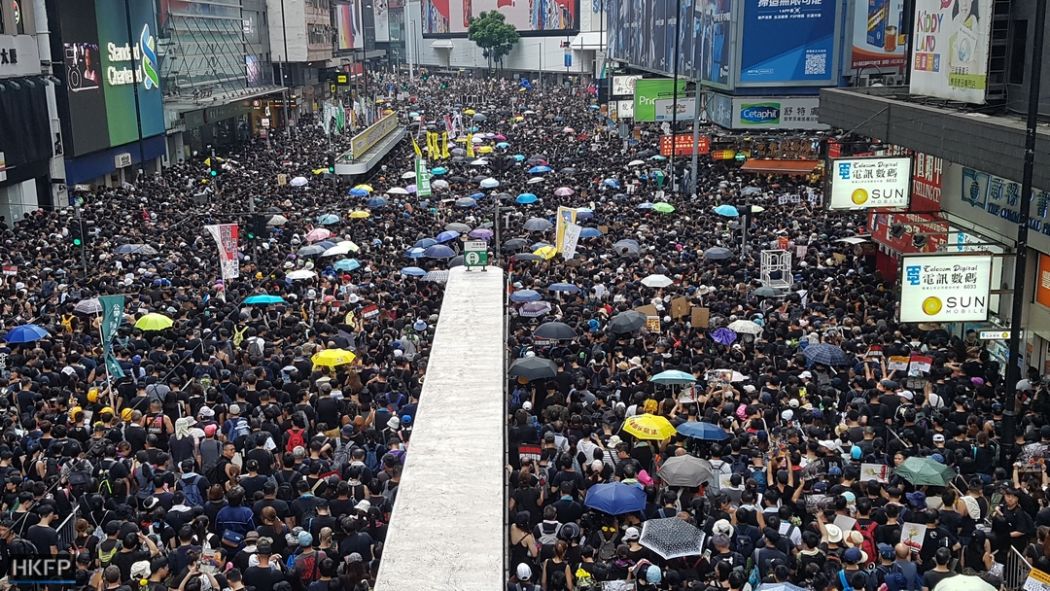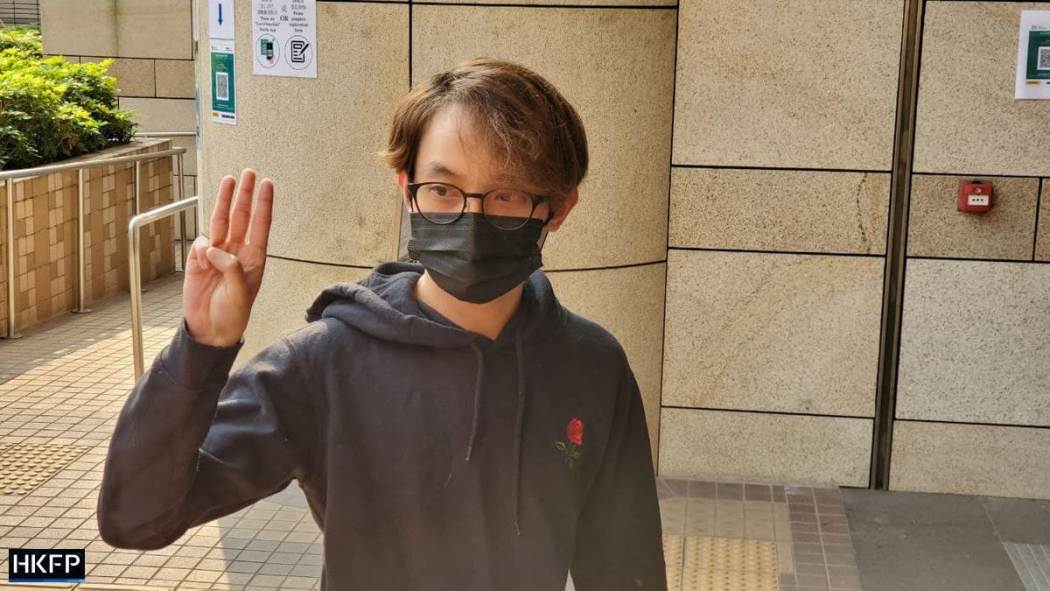An ongoing campaign in pro-establishment media to discredit Hong Kong’s leading pan-democratic protest coalition – the Civil Human Rights Front – continued on Friday when two major news outlets carried prominent articles questioning the organisation’s right to exist.
The latest negative coverage marks the end a two-week period in which the Front has come under sustained attack in Pro-Beijing and state media over not only its role in organising Hong Kong’s recent street protests, but also the sources of its funding.

On March 5, a Singapore media report citing anonymous sources which claimed the Front was under national security investigation prompted a mini-exodus from its ranks, with at least six pro-democracy parties or groups announcing their departure from the coalition.
This was followed by a series of articles in the pro-Beijing media attacking the motives and actions of the group which began on March 15 when Ta Kung Pao reported that four demonstrations organised by the Front in 2019 – most notably on July 1, August 31 and October 1 that year – ultimately turned into “large-scale riots”.
The report went on to say that veteran pro-democracy figures and the Front’s convenor held “secret meetings” the day before these demonstrations, adding: “Marches that began as seemingly ‘peaceful’ events organised by the Civil Human Rights Front led to the storming of the Legislative Council, and paved the way for ”black violence”.
In the latest of its series of stories about the Front, Ta Kung Pao questioned why the group is not registered as an entity or society under Hong Kong laws. “Civil Human Rights Front has operated illegally for 19 years, why hasn’t it been outlawed?” read the front page headline in the newspaper’s Friday edition.
The story was echoed by an article in English published the same day by state media Global Times: “The Civil Human Rights Front had served as a platform for “lam chau” rioters to engage in radical activities, paving the way for black-clad rioters and separatists to stage rallies and demonstrations,” the article read. “Lam Chau” refers to the idea of mutual destruction among pro-democracy protesters.
Ta Kung Pao is 99.99 per cent owned by a company registered in the mainland, which, according to company records and media reports, lists the China Liaison Office as its sole shareholder.
Previous articles over the past few days in Ta Kung Pao have alleged that the Front received donations from foreign countries, claimed its former convenors participated in seminars given by organisations that received funding from US National Endowment for Democracy — which is primarily funded by the US Congress – and criticised the Front’s connections with pro-independence groups from Taiwan.
The Front was formed in 2002 and went onto organise the city’s first July 1 rally in 2003, when half a million Hongkongers took to the streets to protest a bill seeking to pass the Article 23 national security legislation under the Basic Law. The Front has since been the main organiser for the city’s July 1 marches, as a loose coalition of pan-democrat groups and parties.
At least six of its core member groups left after the Chinese-language Singaporean newspaper, Lianhe Zhaobao, reported that the group was under national security investigation. Among the groups which lefts were the Democratic Party, Civic Party, Hong Kong Professional Teacher’s Union, Hong Kong Association for Democracy and People’s Livelihood, and Neighbourhood and Worker’s Service Centre.
Hong Kong’s League of Social Democrats, however, announced it would not leave the coalition.

Previously the Front said it would not hold demonstrations which were not approved by the police, although in 2019 some of its leaders publicly said they were joining protests as individuals despite not receiving police non-objection letters for the rallies.
The Front’s Convenor Figo Chan did not immediately reply to HKFP‘s request for comment. In a Facebook post on March 6, Chan said he “of course respects and understands the decision” by member groups to withdraw.
Chan denied receiving foreign funding during an interview with Ming Pao. He said the Front has only received donations from Hongkongers and held rallies for them, as there was never a need to receive donations from foreign countries. He described such allegations as an “insult.”
“You want to attack and ban even an organisation that has insisted on respecting the bottom line which is the law, what else can this regime tolerate?” he told the newspaper.
“The coalition was built over the years by many organisations and Hongkongers, for the goal of having a legal, peaceful, rational and non violent platform for Hongkongers to voice out,” Chan wrote in the Facebook post.
“For this reason, we will not and cannot disband, and I, as its convenor, am absolutely willing to live and die with the Front as long as there are still member groups that remain.”
Support HKFP | Policies & Ethics | Error/typo? | Contact Us | Newsletter | Transparency & Annual Report | Apps
Help safeguard press freedom & keep HKFP free for all readers by supporting our team

latest national security stories
Support HKFP | Policies & Ethics | Error/typo? | Contact Us | Newsletter | Transparency & Annual Report | Apps
Help safeguard press freedom & keep HKFP free for all readers by supporting our team

LATEST FROM HKFP
HKFP has an impartial stance, transparent funding, and balanced coverage guided by an Ethics Code and Corrections Policy.
Support press freedom & help us surpass 1,000 monthly Patrons: 100% independent, governed by an ethics code & not-for-profit.






























